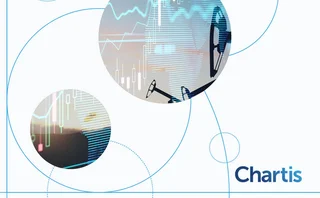
Crude hits all time high of $88, more upside seen
Oil price risk remains to the upside after it shot through $88 a barrel Tuesday on declining US stocks and growing geopolitical tensions in the Middle East, analysts say.
“The risk of $100 oil is now greater than the risk of $60 oil,” said Francisco Blanch, London-based commodity strategist at investment bank Merrill Lynch. “Inventories are much lower than they were this time last year, production globally has contracted yet the demand picture still looks strong,” he said.
Merrill recently revised its fourth quarter crude price forecast from $67.50/bbl to $80/bbl.
At one point November West Texas Intermediate crude, the benchmark US contract, traded at $88.20 /bbl on the New York Mercantile Exchange, a new record. It ended the day at $87.61. On Monday, London's Brent North Sea crude for November delivery at one point soared to a fresh all-time high of $84.48 dollars per barrel on the London-based ICE Futures Europe exchange.
Key to the climbing price is a border dispute between Turkey and Kurdish rebels in northern Iraq. Various news reports cited Turkish Prime Minister Recep Tayyip Erdogan saying last week that he was ready to "act" against Kurdish bases in northern Iraq, which are near large crude-oil pipelines. The Turkish government met Monday to prepare a motion seeking parliamentary approval for a military incursion into neighbouring Iraq to crack down on Kurdish rebel bases there.
Falling inventories are also behind the price rise. A U.S. Energy Department report showed the nation's crude stockpiles unexpectedly fell 1.67 million barrels in the week that ended Oct. 5, instead of the 1.08-million-barrel gain that had been expected. According to the International Energy Agency (IEA), global fuel inventories fell below a five-year average last month, a period when they typically rise.
In its monthly report released Monday, the Organization of the Petroleum Exporting Countries (OPEC) predicted non-OPEC countries will produce 110,000 fewer barrels of oil per day than expected in the fourth quarter, even as demand for crude oil will grow by 100,000 barrels a day compared with last year.
In a statement, the organisation nevertheless said that the current price spike was not supported by fundamentals.
"While the Organization does not favor oil prices at this level, it strongly believes that fundamentals are not supporting current higher prices and that the market is very well supplied," said OPEC Secretary-General Abdalla Salem El-Badri.
Only users who have a paid subscription or are part of a corporate subscription are able to print or copy content.
To access these options, along with all other subscription benefits, please contact info@risk.net or view our subscription options here: http://subscriptions.risk.net/subscribe
You are currently unable to print this content. Please contact info@risk.net to find out more.
You are currently unable to copy this content. Please contact info@risk.net to find out more.
Copyright Infopro Digital Limited. All rights reserved.
As outlined in our terms and conditions, https://www.infopro-digital.com/terms-and-conditions/subscriptions/ (point 2.4), printing is limited to a single copy.
If you would like to purchase additional rights please email info@risk.net
Copyright Infopro Digital Limited. All rights reserved.
You may share this content using our article tools. As outlined in our terms and conditions, https://www.infopro-digital.com/terms-and-conditions/subscriptions/ (clause 2.4), an Authorised User may only make one copy of the materials for their own personal use. You must also comply with the restrictions in clause 2.5.
If you would like to purchase additional rights please email info@risk.net
More on Energy
ETRM systems 2024: market update and vendor landscape
This Chartis report evaluates energy trading and risk management systems that provide front-to-back, asset class-specific and geography-specific coverage, and considers the full energy trade lifecycle
CTRM systems 2024: market update and vendor landscape
A Chartis report on commodity trading and risk management systems that considers its different applications and addresses the market and vendor dynamics to determine the long-term and structural impacts of the overarching market evolution on the…
Energy Risk Commodity Rankings 2024: markets buffeted by geopolitics and economic woes
Winners of the 2024 Commodity Rankings steeled clients to navigate competing forces
Chartis Energy50
The latest iteration of Chartis’ Energy50 ranking
Energy trade surveillance solutions 2023: market and vendor landscape
The market for energy trading surveillance solutions, though small, is expanding as specialist vendors emerge, catering to diverse geographies and market specifics. These vendors, which originate from various sectors, contribute further to the market’s…
Achieving net zero with carbon offsets: best practices and what to avoid
A survey by Risk.net and ION Commodities found that firms are wary of using carbon offsets in their net-zero strategies. While this is understandable, given the reputational risk of many offset projects, it is likely to be extremely difficult and more…
Chartis Energy50 2023
The latest iteration of Chartis' Energy50 2023 ranking and report considers the key issues in today’s energy space, and assesses the vendors operating within it
ION Commodities: spotlight on risk management trends
Energy Risk Software Rankings and awards winner’s interview: ION Commodities







